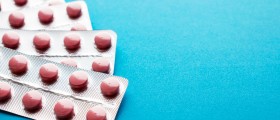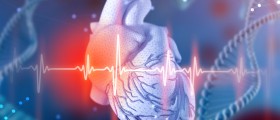
Angina belongs to cardiovascular diseases since it affects the heart blood vessels. It is responsible for insufficient supply of the heart muscle with oxygen and all other nutrients. Angina is considered a potential introduction to a heart attack, therefore, requires proper treatment.
In majority of patients symptoms and signs of angina (chest pain, shortness of breath, nausea, fatigue, anxiety, sweating and dizziness) are induced by exercise and some other strenuous activity as well as emotional stress.
The condition is predominantly caused by atherosclerosis of the coronary blood vessels. Scientists have managed to identify risk factors associated with development of angina. This way we can prevent angina to certain extend by avoiding risk factors or at least reducing their bad influence to the minimum. It is estimated that angina affects more older people, smokers, obese people and people suffering from hypercholesterolemia and hypertriglyceridemia.
Types of Angina
Patients may develop one of two main types of angina. In case of stable angina the symptoms and signs develop gradually and follow certain pattern. Patients first notice they have difficulties (shortness of breath etc) while performing certain strenuous activities such as exercising or climbing stairs. Symptoms fortunately last only for a few minutes and are easily brought under control with medications such as nitrates.
Unstable angina, on the other hand, is characterized by rapid and sudden development of symptoms which then may linger for half an hour. Patients may not respond to nitrates. This condition usually affects people who have first been suffering from stable angina. Unstable angina requires proper medicamentous treatment and, sometimes, surgery.
Prevention of Angina
In order to prevent angina people are due to make several changes regarding their lifestyle, particularly their diet, attitude toward physical activity and unhealthy habits they tend to indulge in.
By making drastic lifestyle changes one may prevent development of angina. Namely, the disease can be postponed for certain number of years and one may delay even fatal complications such as a heart attack or stroke. The magical formula includes healthy and well-balanced diet, maintaining optimal weight and regular exercise. Such people are also due to quit smoking and consume alcohol in moderation.
Food we eat can make drastic changes inside our body. Foods rich in fat, particularly if taken in large amounts, eventually cause hypercholesterolemia and hypertriglyceridemia, two major risk factors for angina. Furthermore, excess of salt in one's diet may be responsible for hypertension, another contributor to the disease. By limiting intake of unhealthy fats one may avoid angina.
With regular physical activity our heart becomes stronger, more supplied with oxygen and the body can more efficiently deal with excess of fat (if there is any). Exercises are excellent means of lowering cholesterol but they should be always combined with proper and healthy diet.
People should opt for a healthy life and quit smoking as soon as possible. Smoking is associated with narrowing of arteries, therefore, it accelerates the onset of angina. And finally, moderate consumption of alcohol may be beneficial for the body. However, excess of alcohol is another contributing factor to angina. Because of that it is best to abstain from alcohol if one cannot restrict its intake.
- www.nhs.uk/conditions/angina/
- www.cdc.gov/heartdisease/coronary_ad.htm
- Photo courtesy of Christopher Patterson by Flickr: www.flickr.com/photos/97623511@N00/160087085/

















Your thoughts on this
Loading...